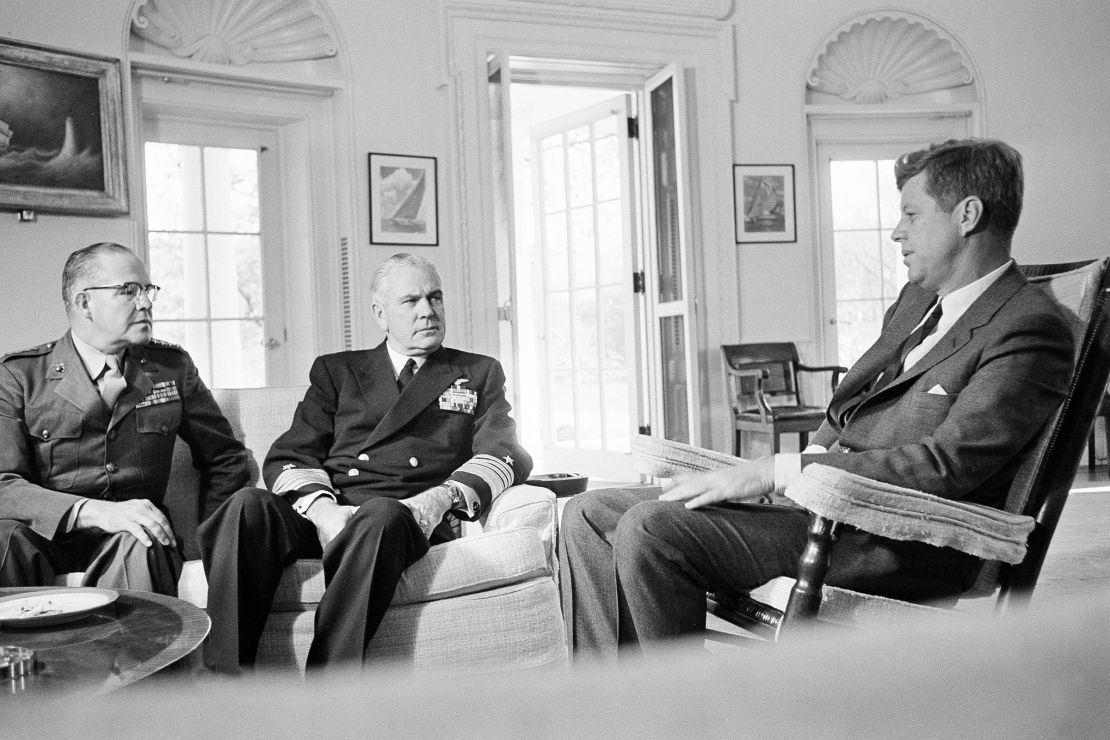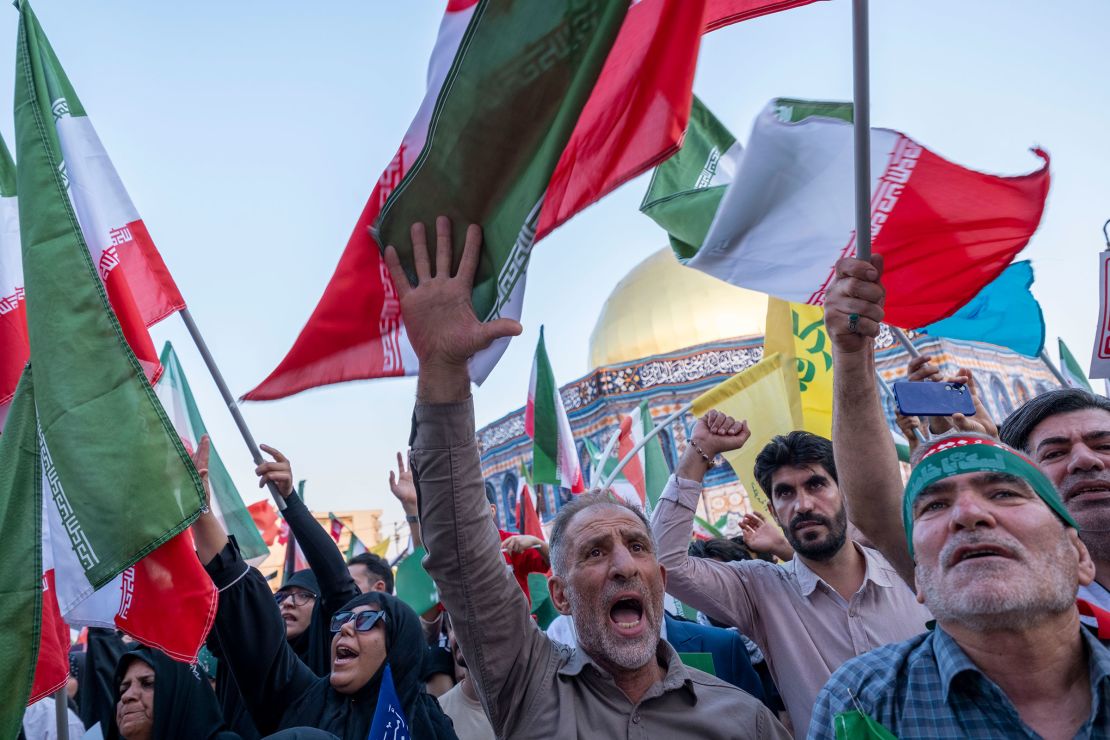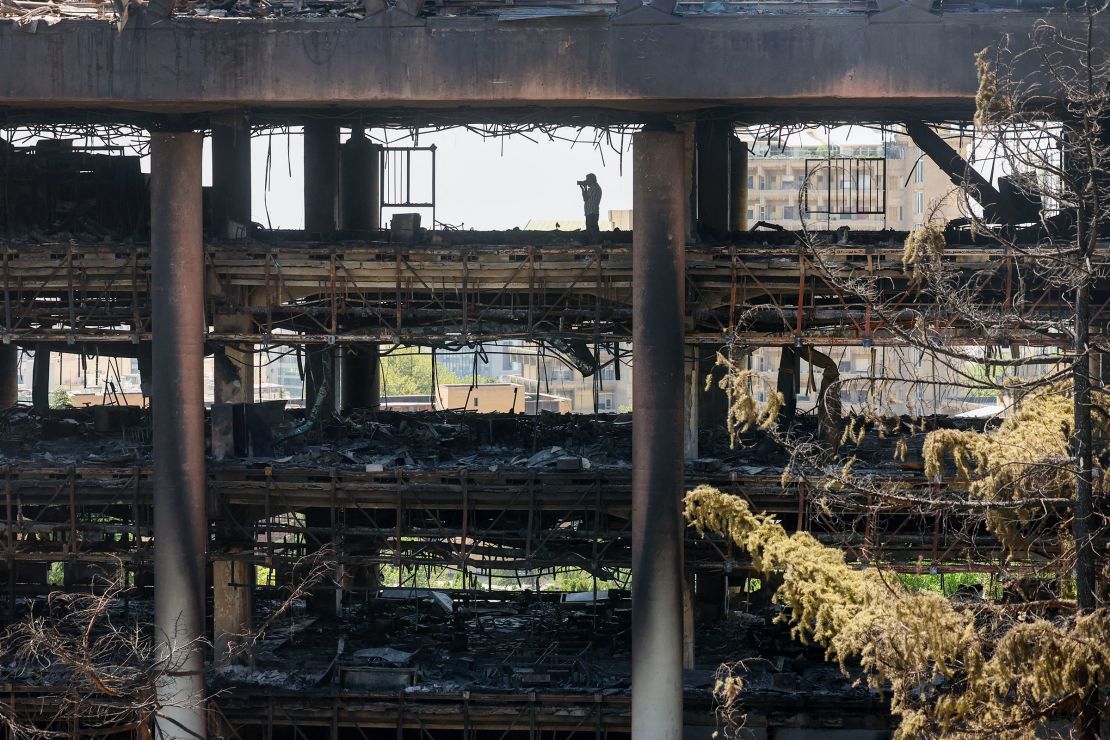CNN
—
It would be easy to mock Donald Trump for blinking. Again.
After all, the president just decided not to decide whether to join Israel’s assault on Iran for up to two weeks.
But it’s not necessarily a sign of weakness when a commander in chief decides to take his time over matters of life and death.
“We’d all like a diplomatic resolution here. And diplomacy with a firm deadline can be very effective,” Brett McGurk, a former senior White House and State Department official, told CNN’s Anderson Cooper. “If this is a firm deadline, and by the end of the two weeks we either need a diplomatic resolution … or the president is prepared to use force … that can be a very effective combination.”
But Trump’s record of unpredictability casts doubt on whether he will make use of the maneuvering room he’s created.
In both his presidencies, Trump has often imposed two-week action deadlines on himself on thorny issues — including infrastructure, trade deals and Russia sanctions — and then done nothing. This is consistent with his trademark life strategy to perpetually delay reckonings — whether over personal financial crises, legal threats or the impossible decisions that land on the Oval Office desk.
Until Thursday, all the signs coming out of the White House were that Trump was moving close to ordering US bombing raids on Iran’s subterranean nuclear plant at Fordow — despite the risk this could drag the United States into another Middle East war.
But after reviewing strike options, he’s pulled back for now.
It didn’t take long for Trump critics to fill social media with new sightings of TACO (“Trump always chickens out”) syndrome. But Trump, for once, is operating in the real world and not the online one. No one knows what would happen if the US bombed Iran. The lives of US service personnel would be on the line. And geopolitical shockwaves could cause a regional war, an Iranian civil war, or a wave of reprisals from Tehran.
Trump isn’t the only president to equivocate over launching new military action in the Middle East as the dark shadow of the Iraq war still haunts US politics.
Comparisons will be made to ex-President Barack Obama’s decision to pass on bombing Syria to enforce a “red line” over chemical weapons use in 2013, which many analysts now view as a mistake. Obama demurred because he couldn’t be sure about what would happen the day after the US resorted to military force.
Sometimes, a decision by a president not to wage war— when multiple stakeholders are clamoring for action — can be as courageous as one to order strikes.

Trump is wrestling with the gravest national security dilemma of either of his presidencies. He has promised that Iran, which has threatened to wipe Israel off the map and regards the US as a Great Satan, will never be allowed to have a nuclear bomb. So, two-week pause or not, he may end up with no option but to use military force.
This is like no other decision Trump has faced as president.
It’s one thing to set off a trade war on a Tuesday and defuse it on a Wednesday. But if Trump sends US B-2 bombers with their bunker-busting bombs on a mission to destroy Fordow, there’s no going back.
His delay gives him time. The question is whether he will use it.
To begin with, the president has restored his own ability to take control of the timeline for US action. It often looked this week like he was being pushed into joining the conflict by the pace of Israel’s assault on Iran.
The strategic reality here is that Israel started a conflict — after an evaluation of its own critical interests — that it could not fully end on its own. Only the United States has the capacity to send bombs deep into the mountain protecting the Fordow enrichment plant.
The president justified his pause by the need to give diplomacy one last try.
“Based on the fact that there’s a substantial chance of negotiations that may or may not take place with Iran in the near future, I will make my decision whether or not to go within the next two weeks,” he said in a statement read out to reporters by White House press secretary Karoline Leavitt.
Trump’s statesmanship on failed Iran nuclear talks has not been adept, so breakthroughs seem unlikely.
But possible new talks between his envoy Steve Witkoff and Iranian officials could test whether six days of relentless Israeli bombardments have shifted calculations among Iran’s leaders. Would the leadership, for example, now consider a previously unpalatable decision to verifiably cede their nuclear program and right to enrich uranium in exchange for a chance at survival for the revolutionary regime?

Trump probably needs to change his uncompromising approach to talks. He might follow the example of an illustrious predecessor.
In a speech at American University only five months before his assassination, President John F. Kennedy reflected on the lessons he drew from the Cuban Missile crisis in 1962. “Above all, while defending our own vital interests, nuclear powers must avert those confrontations which bring an adversary to a choice of either a humiliating retreat or a nuclear war,” Kennedy said.
Trump’s situation with Iran is not completely analogous, because Tehran is not believed to yet possess a nuclear weapon. But the principle is the same: For diplomacy to work, Trump will need to offer Iran a face-saving way out of the confrontation that could preserve a nominal sense of honor. So far, he’s done the opposite, demanding “UNCONDITIONAL SURRENDER” on social media. For a regime founded on opposing what it sees as decades of US imperialism and domination, this is an impossible condition.

Karim Sadjadpour, a senior fellow at the Carnegie Endowment for International Peace, argued that conditions that historically precipitated Iranian concessions could be slotting into place. He identified three such factors — Iran perceives it faces existential economic pressure; a credible military threat; and diplomatic isolation. But Sadjadpour said a fourth trigger for progress was needed — “a face-saving diplomatic exit.”
“The offer that was given to them was ‘unconditional surrender.’ That’s what President Trump demanded of them. And most dictators are not prepared to take the offer of unconditional surrender,” Sadjadpour said. He added, “I think we need to think seriously about packaging this a little bit differently so there’s a ladder for them to climb down from.”
Iran’s next moves could also be influenced by its perceptions of Trump’s true intent. The president’s frequent and multiple climb-downs — for instance on his trade war and over his reluctance to impose any pressure on Russia over Ukraine — raise doubts about his credibility.
Trump’s malleability might have been one factor that prompted Israeli Prime Minister Benjamin Netanyahu to use what Israel believes is a strategic window to take on Iran, even though he knew he could be dragging the US into a new war.
If Iran’s leaders conclude that Trump is a paper tiger, they may be tempted to call his bluff. They might make a dangerous mistake. But US history is also littered with disastrous examples of presidents pushed into using military force to protect their personal credibility.

Trump’s pause left Israel with its own questions. The Netanyahu government, with the help of former senior Israeli officials appearing on US TV networks, has left little doubt that it wants the United States to enter the fight.
One possible scenario is that Netanyahu uses the next two weeks to examine options that Israel may have to disable Fordow and other facilities on its own. One of the few possibilities is a daring commando raid. This would be a huge risk with an uncertain chance of success. And it is unclear whether Israel on its own has the lift and the search-and-rescue capability that might allow it to carry off such an operation.
“The challenge for the Israelis is, if the United States gives negotiations a chance, will the Israelis wait?” Seth Jones, a former adviser to the commanding general of US special forces in Afghanistan, told CNN’s Erin Burnett on Thursday. “It is not out of the question … that they decide they have to conduct that operation in Fordow and not wait.”
This may hint at another reason for Trump’s pause. Maybe he’s hoping that events over the next two weeks spare him the need to take a fateful decision.
A two-week pause may also give the president time for two other priorities — to sell what may be an unpopular choice to stage military action at home — and to fully position US troops for an attack and any Iranian reprisals.
The prospect of US strikes set off uproar inside the president’s political base since his promise to steer clear of any more Middle East wars has always been central to his appeal. One of the most vocal opponents of new, extended US engagements is Steve Bannon, Trump’s former political guru, who now has a popular YouTube show. Bannon had lunch with the president at the White House on Thursday. Another pro-Trump conservative, Tucker Carlson, has attacked right-wing media figures who are agitating for war in Iran.
But the prospect of a MAGA revolt may be overstated. Bannon has indicated that if it came to it in the end, he’d get in line behind Trump. Trump also has a deep bond with his voters. He created his coalition; it did not create him, and he may have substantial leeway to lead his followers in a new direction.
“Trust in President Trump. President Trump has incredible instincts, and President Trump kept America and the world safe in his first term,” Leavitt said, in a direct message to the president’s supporters on Thursday.
This, however, won’t move millions of Americans who oppose Trump. After five months in office that have ripped deep national divides — seemingly on purpose — he’ll have a much harder job wining the support of the country as a whole.

